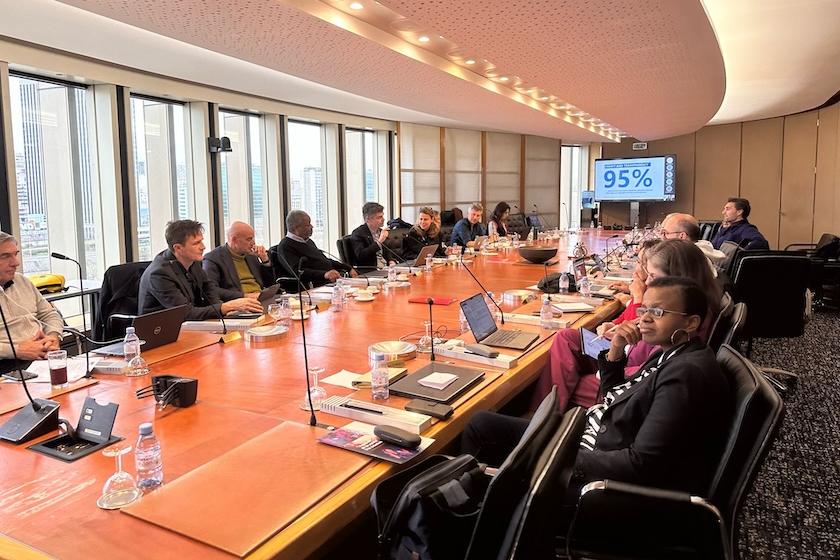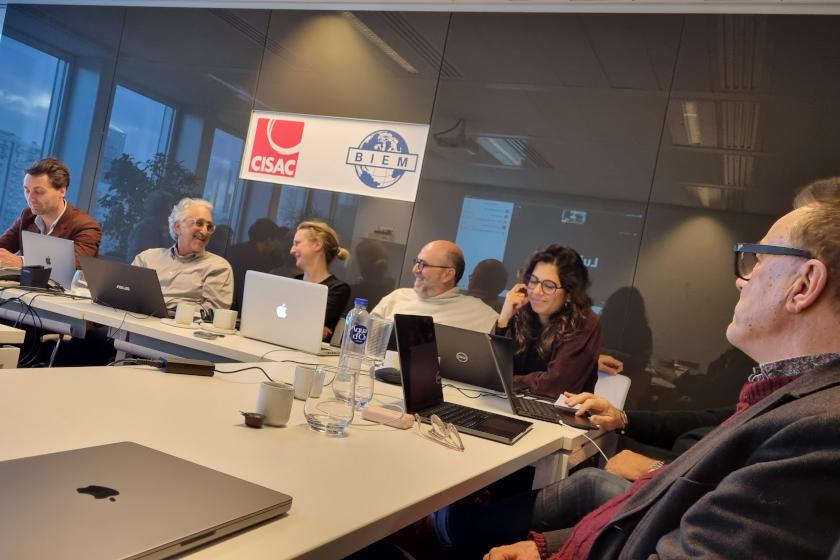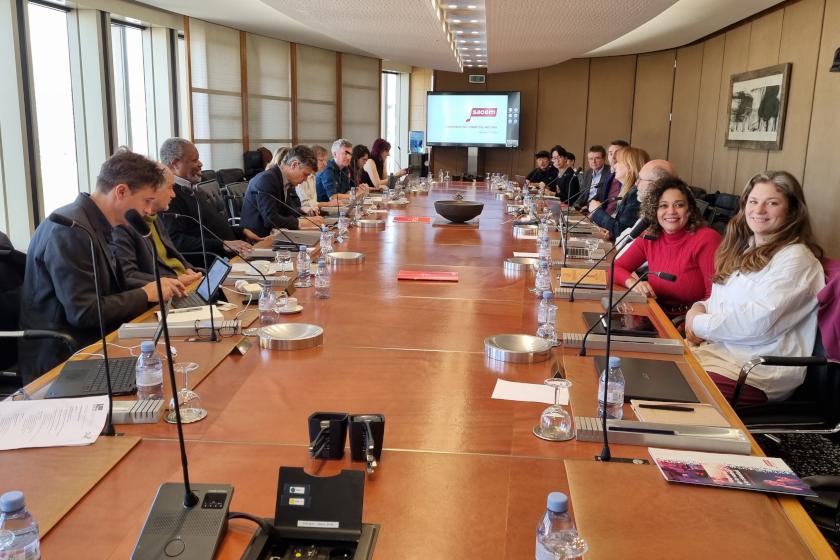
Artificial intelligence and global regional activities take centre stage at CIAM ExCo in Paris
Artificial intelligence, as an opportunity to augment making music among creators, but also as a threat due to the lack of remuneration, transparency, and adequate labelling of human versus AI-generated content, dominated two days of meetings of the CIAM Executive Committee in Paris on February 12th and 13th.
The impact of generative AI on music creators is at the forefront of CIAM’s strategic focus for 2024, especially given the speed of its development globally. AI also has remains a key priority of CISAC as Director General Gadi Oron elaborated to the CIAM Exco in his opening remarks during the meeting.
The CIAM ExCo special guest was Vanderbilt University Law School Professor Daniel Gervais, PhD, who provided the latest explanations on AI technology, the legal context, and implications for future licensing and a proposal regarding ongoing remuneration. CIAM is working in collaboration with Gervais on an AI white paper for 2024.

The ExCo received activity reports from its regional partner alliances.
The Asia-Pacific Music Alliance (APMA) detailed its December ExCo and General Assembly in Mumbai as well as the International Music Creators Seminar, which saw donations to support societies in Bangladesh and Sri Lanka. An overview of the music sector in Asia was given, particularly on leading digital collections markets and territories showing the most growth between 2019-2022. APMA’s future plans include supporting improvement of copyright laws and systems; research and support on issues such as AI and buyouts; training support for developing societies; research on streamlining markets and support to improve creators’ rights; supporting legislation to improve creators’ rights; and donations to music creator organisations. A discussion of CIAM activities in the framework of the upcoming 2024 CISAC General Assembly in Seoul took place.
The African Music Academy (AMA) provided a review of its structure, including creators covering regions of Africa and its diaspora. AMA explained its upcoming AMA Awards, the categories to receive awards, the process for laureates in being selected, how voting will take place, and how awards will be delivered. The global prize list is to be announced in June of each year.
ALCAM, the partner alliance for Latin America, presented its challenges, including AI and the metaverse, as well as its efforts in training creators and developing spaces for creators to meet and exchange. ALCAM has been active in training in Paraguay, Bolivia, Patagonia and Central America. Its work is also focused on copyright, digital literacy, and creative encounters.
Music Creators North America (MCNA) spoke to its submissions to the United States Copyright Office arguing for rights regarding AI developments.
The European Composer and Songwriter Association (ECSA) has prioritised music streaming, AI, and unfair contractual practices and buy-outs.
For AI, ECSA joined 12 creator organisations in sending a letter in January, specifically calling for stronger transparency and labelling obligations. ECSA and the Ivors Academy organised an online exchange of views on AI and music streaming with UK and European Parliament MEPs in January 2024.
ECSA also participated in a roundtable on fixing music streaming at the International Creators Dialogue in November in Rabat, Morocco, has an ongoing mentorship programme for female composers with the Association européenne des conservatoires (AEC).
Fair Trade Music International (FTMI) continues to be a pivotal activity with CIAM. In 2023, the inaugural FTMI Awards were given to the late Jörg Evers for the Lifetime Achievement Award as well as Solange Cesarnova for the Outstanding Achievement Award. The process was reviewed to look forward to the 2024 edition. A discussion took place to build upon the success of the FTMI Mechanical Licensing Collective educational video, which seeks to help creators understand unmatched royalties, for future creators’ rights awareness campaigns.

The second day of the CIAM ExCo featured special presentations from SACEM, including its approach to providing fair remuneration for generative AI.
SACEM also reported results from its January 30th, 2024 study on AI and music. The study, conducted by Goldmedia on behalf of SACEM and GEMA, looks at the impact of generative AI in the music industry and projected AI’s enormous economic impact in the years to come. It can be read here.
